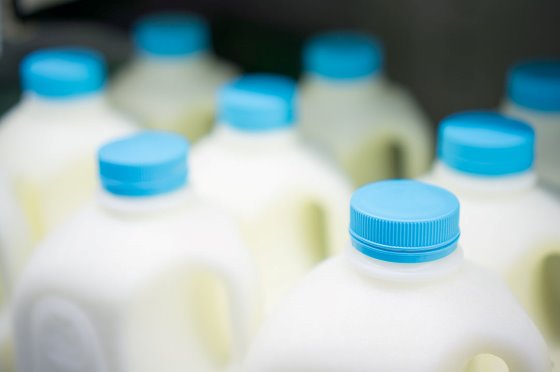Israeli farmers ‘at peace’ with govt over dairy imports

Dairy farmer Jonathan Amir, who also represents the Israel Cattle Breeders Association, said: “We agreed to a 5-year term where the amount of dairy imports would be strictly controlled.
“If there was a sudden rise in demand in Israel then we have agreed that local producers fill most of that demand and imports cater for the rest. However, when this 5-year term is up we will need to negotiate hard again.”
Jonathan was speaking at the virtual EuroTier 2021 exhibition, currently taking place from 9 – 12 February, detailing the specific challenges Israeli farmers face with the extreme heat and other obstacles.
Dairy in Israel
He explained that the majority of dairy barns in Israel are large with open sides and provide around 18 square metres of space per cow to lie down.
Israel has 1117,556 cows and produces around 1.5 billion litres of milk per year. In total, there are 715 farms with the majority, 78% of them, classed as small farms with around 70 milking cows or less.
The national average yield is 11,852 litres per cow per year with average butterfat of 3.83% and protein of 3.43%. Israeli people consume 117 litres per capita per year.
“The structure of dairy farms in Israel is changing,” said Jonathan. “Farm numbers are decreasing and average cow numbers per farm are increasing.”
Heat stress in cows
“The biggest current problem we face is heat stress of the cows. Now we are in February and we already have over 20°C every day. This is more than normal and I can already see the effect this is having on the cows.”
Cows suffering from heat stress eat less, their milk yields drop, fertility decreases and they also have less resistance to disease.
In response, Ziv Atad, who is also a dairy farmer and an advisor in Israel, said: “We have heat stress among the cows from April to October, most severely from June to September.
“The cows are European animals and they don’t like the heat. To combat the heat and high humidity we have huge fans that operate 24 hours per day, 365 days per year.
“In addition to that we have showers in the milking shed which sprinkle water on the cows while they wait for milking to also cool them down.”
Showering to combat heat stress
As well as milking times the cows are brought in to the sprinklers every 6 hours for up to 1 hour of showering. The cows are sprayed every 3 minutes on a timer with high pressure water to soak the cows to the skin and then fans dry them out for the next 3 minutes.
Jonathan has heat recorders on his cows necks and when the cows temperature rises the system tells him the cows are overheating. The collars measure the cows breathing and sends the data to the farm computer. This then alerts Jonathan to tell him when to take the cows to the shower area to cool down.
All the water used to spray the cows is collected and treated before being released for re-use or it can go to the local sewerage plant.
Feeding schedule adjusted in high temperatures
In the summer time when the high temperatures put the cows off eating, the Israeli farmers try to use diets with less fibre in them to help the cows digest it better.
Jonathan added: “One of the things we try to do to encourage the cows to eat is move the feed forward 7 to 8 times per day.
“This action releases smells which makes the cows curious and they come and eat more often.”
Read also
Victoria Golubyatnikova, SGS – Speaker at BLACK SEA OIL TRADE-2025, Bucharest
Over 700 thsd tons of Ukrainian grain were exported
Moldovan government approves sale of Giurgiuleşti port to Romania
In Central Russia, oilseed crops overtook wheat in terms of sown area for the firs...
Sunflower seeds harvest forecasts: Drought hits Ukraine, while Russia and Kazakhst...
Write to us
Our manager will contact you soon



